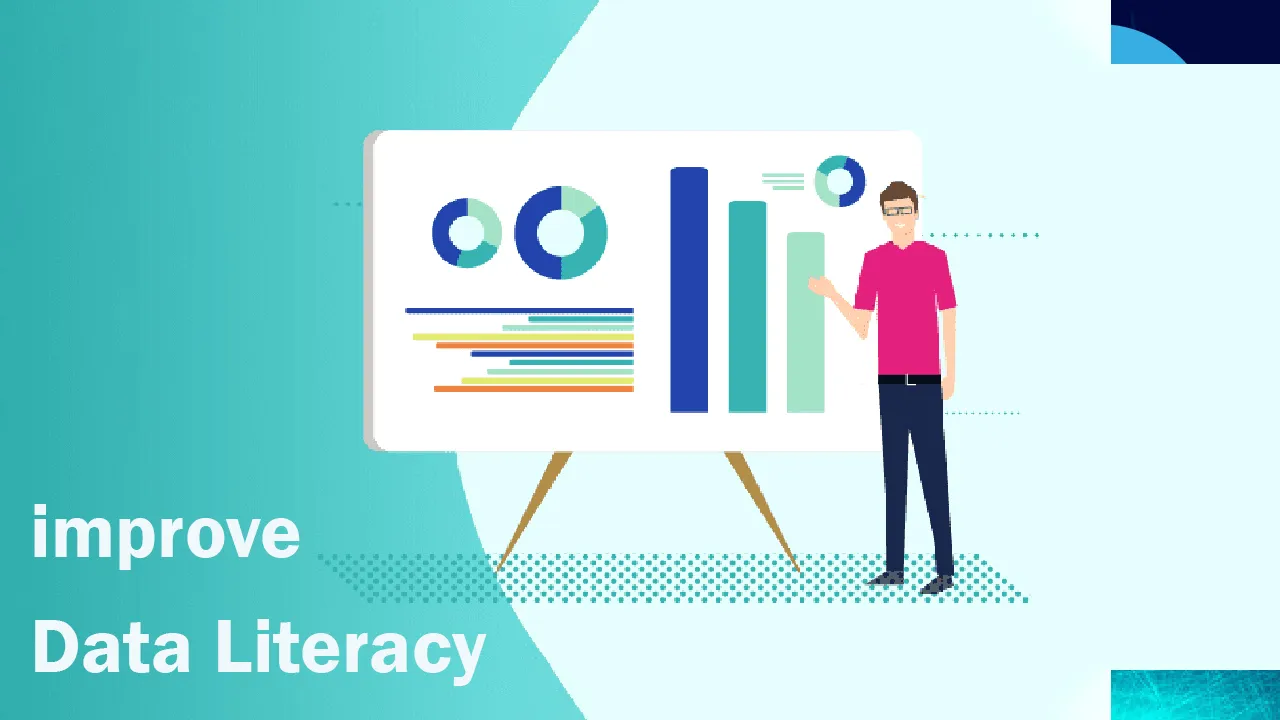Over the last decade, data has become an important part of any organization. But over the last few years, it has become essential for the growth, productivity, and success of companies across the globe. We are gathering an immense amount of data, which provides insights into everything from consumer behavior to company finances when used in the right way. Business intelligence (BI) techniques and Predictive Analytics are undoubtedly helping organizations manage data; however, this still requires data literacy.
The problem is that companies are lacking AI and data literacy skills. Gartner predicts that by the end of 2050, 50% of organizations will not have sufficient data literacy skills. This means that companies won’t be able to achieve the necessary value. In order to gain the most from data and new technologies, companies must begin to improve data literacy.
What Is Data Literacy?
Data literacy is considered a Key Performance Indicator (KPI) for companies in today’s market. Whereas not so long ago, it was limited to the ability to read and write, the skill set required by employees has now expanded.
For an employee to successfully and accurately solve problems, they must be able to read, write, and communicate data in the relevant context.
They also need to understand the sources of data, how it is constructed, and the methods used to analyze it. On top of this, it’s essential to know how to explain use cases, applications, and resulting values.
It is more than likely that most companies have begun the process of creating a data-driven organization and are already taking advantage of better decision-making. They have also managed to incorporate the ethical and legal side of data protection and transparency. As much as 90% of data and analytics decision-makers are aware of making data insights in decision-making a priority. Nevertheless, this is still a huge struggle for most.
Why Is Data Literacy a Struggle?
While everyone is aware of the importance of data, not everyone is aware of its role in their job. It can no longer be done to the data analysts to be responsible for data literacy. As data becomes more important, everybody within an organization will need to know how data impacts their work. It is also possible that data professionals don’t have a clear enough understanding of their work in the business context.
As the volume of data continues to grow, it is becoming more and more difficult for those without the technical knowledge to keep up with those who are data-savvy. Censuswide reported data literacy findings after surveying over 7,000 business decision-makers worldwide:
- 76% of decision-makers aren’t confident to work with data
- 32% of senior leaders are considered data literate
- Only 21% of 16–24-year-olds are data literate
- 78% of employees would be willing to invest their time to improve data skills
#data-analysis #data-science #data-literacy #data-visualization
